PROFESSIONAL RECOVERY NETWORK (PRN) IN TEXAS
Home » Practice Areas » Professional Recovery Network in Texas (PRN)
The Professional Recovery Network (or “PRN”) was originally founded in 1981 by the Texas Pharmacy Association as the “Pharmacist Recovery Network” with the intention of creating a confidential resource for pharmacists suffering from mental illness or substance abuse. Since that time the PRN has expanded to include non-pharmacist professionals and now serves as the official peer assistance program of the Texas State Board of Pharmacy (TSBP), Texas State Board of Dental Examiners (TSBDE), Texas Board of Veterinary Medical Examiners (TBVME), and most recently, the Texas Optometry Board (TOB). The PRN has expressly contracted with each board to function as their peer assistance program and provide monitoring, support, and screening services for licensees who participate in the PRN through a confidential referral or board order.
The PRN’s mission is two-fold. First, the PRN is designed to act as a resource for licensees suffering from substance abuse or a serious mental health diagnosis. They can and do assist such individuals in finding treatment, providing structure for their on-going care, and objectively monitoring the licensee’s recovery and continued ability to safely practice their profession. What is often initially overlooked by prospective or current PRN participants is the PRN’s second goal: to protect the public from unsafe licensees. As such, the PRN will often refer a licensee to their licensing board if they decline PRN participation or fail to comply with their existing participation agreement. In this respect, the PRN serves more as a monitoring entity pursuant to its board contracts.
Licensees typically enter the Professional Recovery Network through an individual referral, non-disciplinary board referral, or board order. Individual referrals can be generated by an employer, colleague, or family member, or the licensee can contact the PRN directly and self-refer. The TSBP, TSBDE, TBVME, and TOB also have the authority to order their respective licensees to enter the PRN pursuant to a Board Order. Depending on the board’s disciplinary policies, such an order may or may not be confidential. In some situations, certain boards also have the option of confidentially referring a licensee to the PRN without a board order.
If ordered to participate in the PRN or, in the instance of a self-referral, it is determined that the licensee does have a legitimate mental health or substance abuse issue, the PRN will propose a monitoring agreement. The length of a PRN monitoring agreement varies from case to case but the most common term is for five years. The PRN will tailor the specific requirements of a participation contract based on the licensee’s individual underlying issues. However, most agreements follow a similar mold.
For example, licensee’s suffering from substance abuse will often be asked to complete in-patient or out-patient treatment, attend twelve-step meetings, participate in PRN meetings and activities, and submit to regular randomized screening for drugs and alcohol. In many instances, such participants will be asked to discontinue potentially addictive or mind-altering prescription drugs unless approved by an addictionologist. Pharmacists, dentists, veterinarians, or optometrists with mental health diagnoses will usually be required to remain under the care of an appropriate mental health professional that submits periodic reports back to the PRN.
Should a participant fail to comply with their participation agreement, the Professional Recovery Network is contractually obligated to refer the licensee back to their board. Additionally, should a licensee self-refer to the PRN and then decline to participate, their case will also be forwarded to their respective Board. Many licensees do not realize this and are frustrated when they are referred to their Board after individually reaching out to PRN.
Get Help from a Texas Professional License Defense Lawyer
Any pharmacist, veterinarian, dentist, or optometrist experiencing issues with the Professional Recovery Network should consult with an attorney. This includes licensees thinking of contacting the PRN for assistance. The attorneys at the Leichter Law Firm PC have many years of experience dealing with the PRN and the boards it contracts with. Oftentimes, a potential controversy with the PRN can be avoided or resolved through timely intervention.
A PRN participant who knows that their case is being referred to their licensing board should contact an attorney immediately. The consequences of PRN referral back to the board can be dire and requires a vigorous defense and/or timely implementation of remedial measures. Effective legal representation can play the decisive factor in a licensee’s continued ability to practice their profession, so do not hesitate and call us today at 512.495.9995.
Get in Touch
Office Locations
1602 E 7th St
Austin, TX 78702
Phone: (512) 495-9995
Get Directions
3700 N Main St
Houston, TX 77009
Phone: (713) 714-2446
Get Directions
214 N 16th St #128
McAllen, TX 78501
Phone: (956) 205-0884
Get Directions

